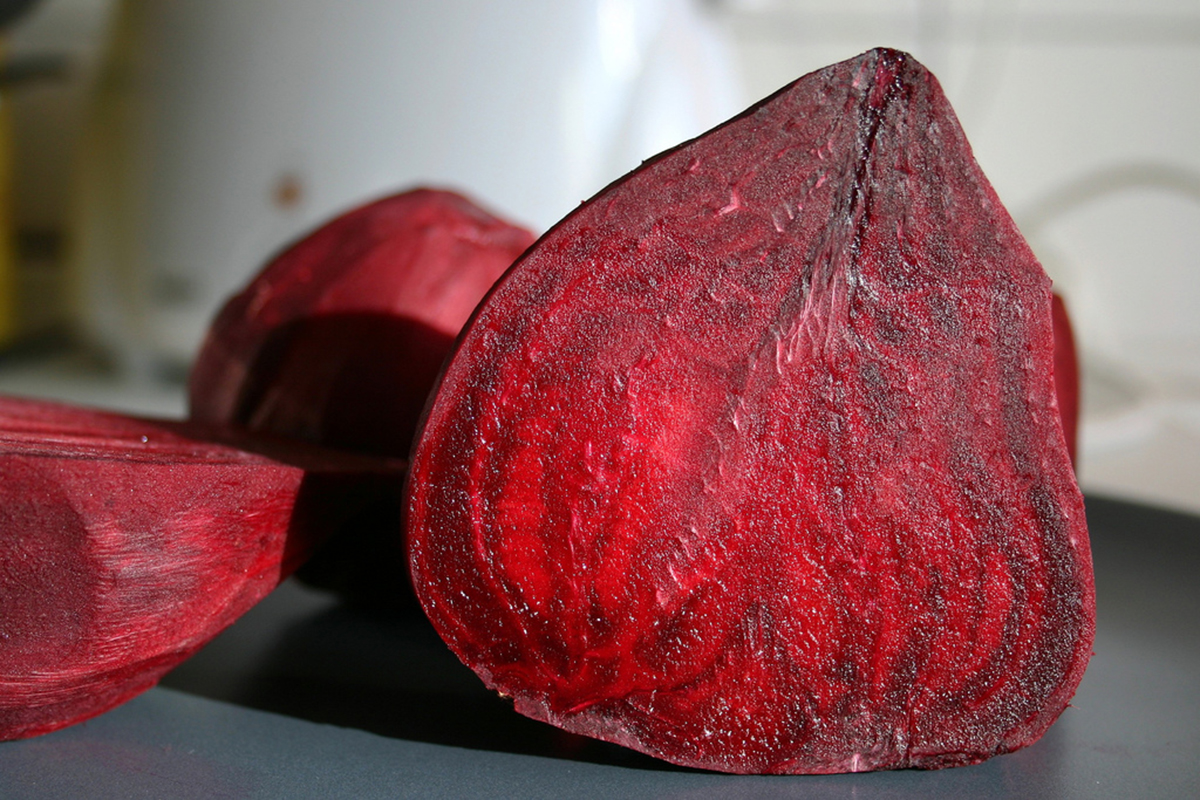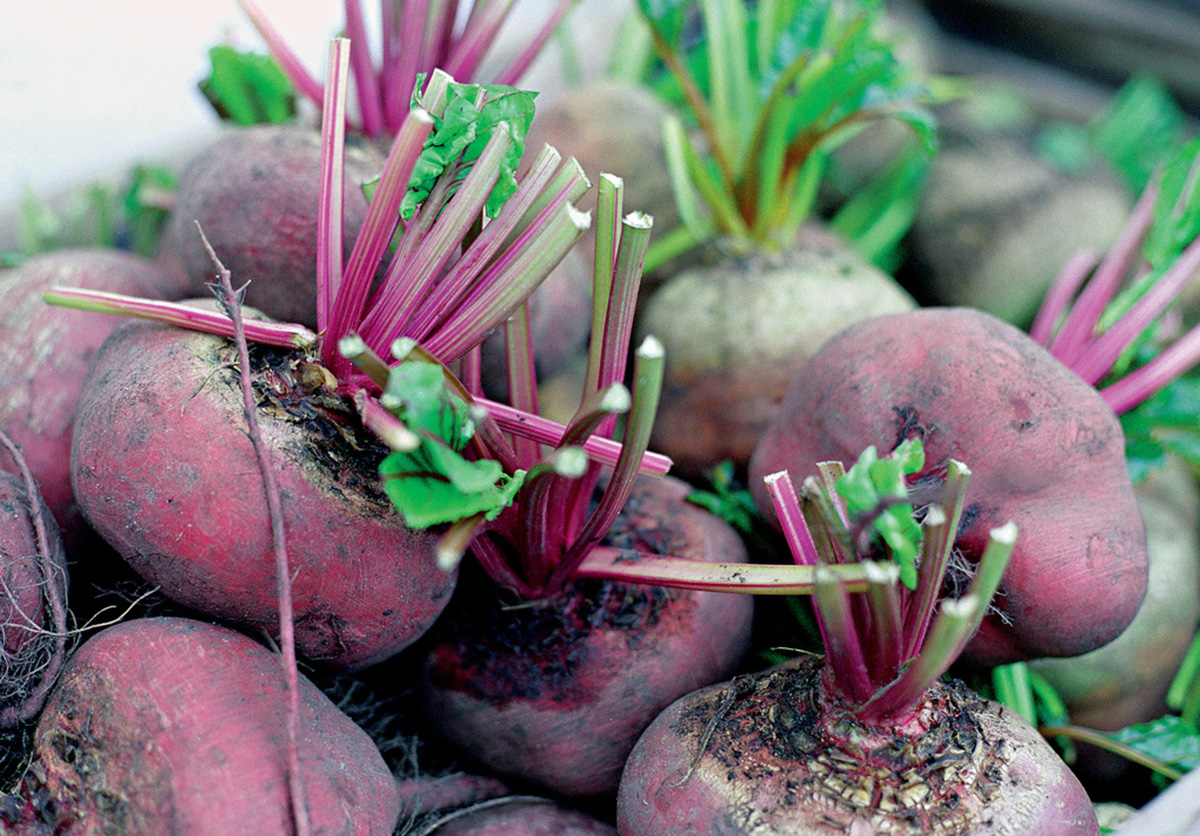The only thing beetroot has in common with everybody’s idea of a sports supplement is that it’s brightly colored. But then, sports supplements tend to fall into two categories: those that are ineffective, essentially colored water, and those that are illegal, dangerous and intended for veterinary use. So it’s surprising to be told that there’s a supplement with proven effects that’s cheap, effective and actually makes you healthier as well as perform better. It does stain, though, so be warned.
I’m talking about beetroot juice.
If you’re rolling your eyes at this point, you’re not alone. The whole idea of so-called superfoods and the furore around supposed panaceas like apple cider vinegar or Greek yoghurt have made a claim like this automatically sound suspicious at best. And when people are talking about our health we have a right to be skeptical. But beetroot juice is the real deal, with no-one expecting to make money from it and a raft of studies showing come quite surprising results in athletes.

How Does Beetroot Affect Performance?
Beetroot, either eaten or as a juice, essentially seems to aid performance by increasing power output. Athletes who drank beetroot juice or ate beetroots before being tested showed increased power output and were able to complete time trials faster than control groups. And it’s not a result of a general improvement in health.
READ Kimchi Health Benefits: Why This Korean Dish Is More Than A Condiment
Beetroot can be effective immediately in increasing power output measurably and strength output can increase in just one week, according to studies. At the University of Connecticut, trained men were given beetroot or a placebo and assessed after 14 days’ training. Those who used beetroot exhibited a 25 percent improvement in strength in the bench press and a 15 percent increase in their bench press power. Those are some pretty big numbers, and they equate to increased tolerance for training and a resulting increase in muscle mass. Yes, there's already a substance available that can hit numbers like that and deliver similar benefits; but it’s one of those "illegal-and-meant-for-vets" ones we mentioned earlier and besides, it’s associated with a slew of health problems. Beetroots actually boost health, especially improving cardiovascular health.
How Does Beetroot Boost Performance?
The best ideas we have are bound up with nitrates and betaine. Betaine is an amino acid found in beetroots, hence its name. It’s technically known as trimethylglycine, and is a breakdown product of choline, found in red meat amongst other sources. Betaine can lower the risk of heart disease by changing the dangerous amino acid homocysteine into methionine, and can enhance liver health and joint recovery — all positive sounding outcomes. But how does betaine boost performance?
Theories abound. It could be because betaine increases the amount of creatine that the body makes naturally. Or, it could be that it cuts lactate production. Finally, there’s some evidence that betaine increases production of insulin-like growth factor and human growth hormone, two of the most anabolic hormones in the body. It’s also possible that betaine’s efficacy is a result of all these.
We should also talk about nitrates. Beetroots have a high nitrate content and it looks as if when you eat beetroots, your body absorbs the nitrates and converts them to nitrite, the precursor to nitric oxide. Nitric oxide is a vasodilator that opens blood vessels and increases oxygen efficiency at the cellular level. It’s likely that this effect is most pronounced when athletes do some form of endurance-oriented or pump training that carries more blood to the muscles.
Who Benefits From Beetroot?
The evidence is mixed. It seems that beetroot is best at increasing power,then strength and only as an afterthought endurance. Some studies suggest it doesn;’t improve pure endurance, like long distance cycling, very much at all. Others strongly indicate that beetroot helps with endurance. If you’re interested in power or in building muscle, beetroot can help. If you’re a short-distance cyclist or runner the evidence base is there to say beetroot can make a significant difference to your goals.
What About Endurance Athletes?
Endurance athletes like marathon runners and long-distance cyclists aren’t as well served by the effects of beetroot as other athletes. In one study, eating two medium sized beetroots before completing a 5km timed treadmill run produced a three percent increase in speed over the control group — nothing to sniff at when it equates to a 41 second time difference.

And in another study, cyclists who drank half a liter of beetroot juice before a 10-mile cycle ride saw the same three percent bump in performance. For endurance athletes, however, beetroot has to be "preloaded" — unlike power and strength, endurance doesn’t benefit from beetroot immediately and it usually takes a week or so to become effective.
Are There Any Side Effects To 'Juicing'?
Beetroots are very high in fiber and their flavor is an acquired taste, so betaine is sold as a supplement and concentrated beetroot shots are also available. If you eat a large amount of beetroots, it can stain your urine and stool slightly pink. This has nothing to do with health, it’s just dye, but it can be a bit unsettling. And eating a lot of beetroots when you’re not used to it can cause some gastrointestinal discomfort.
That’s about it for negative side effects, but there are some positive side effects too.
Beetroot can help with your iron and folate levels, and betaine has some evidence behind it as a preventative against certain types of cancer. Beetroot also helps improve liver function and contains tryptophan which theoretically increases relaxation and wellbeing, though many dietary sources can’t pass the blood-brain barrier in practice.
READ Juice It Up For Better Health
In short, there's nothing to lose from trying beetroot. If you’re using betaine as a supplement, the usual dosage is about 1.5g to 2g daily and the same before each training session. Eating two medium beetroots or drinking about half a liter of beetroot juice is roughly equivalent to this.
- Gretchen Reynolds, Looking for Fitness in a Glass of Juice, New York Times http://well.blogs.nytimes.com/2012/08/08/looking-for-fitness-in-a-glass-of-juice/?_r=2
- Acute dietary nitrate supplementation improves cycling time trial performance, lankly et al http://www.ncbi.nlm.nih.gov/pubmed/21471821
- Marjorie Miller, To beet or not to beet? Researchers test theories of beet juice benefits Penn State News http://news.psu.edu/story/341148/2015/01/19/research/beet-or-not-beet-researchers-test-theories-beet-juice-benefits
- Photo courtesy of tillwe via Flickr: www.flickr.com/photos/tillwe/3210113779
- Photo courtesy of tillwe via Flickr: www.flickr.com/photos/tillwe/3210113779
- Photo courtesy of Skånska Matupplevelser via Flickr: www.flickr.com/photos/matupplevelser/4644483562


Your thoughts on this